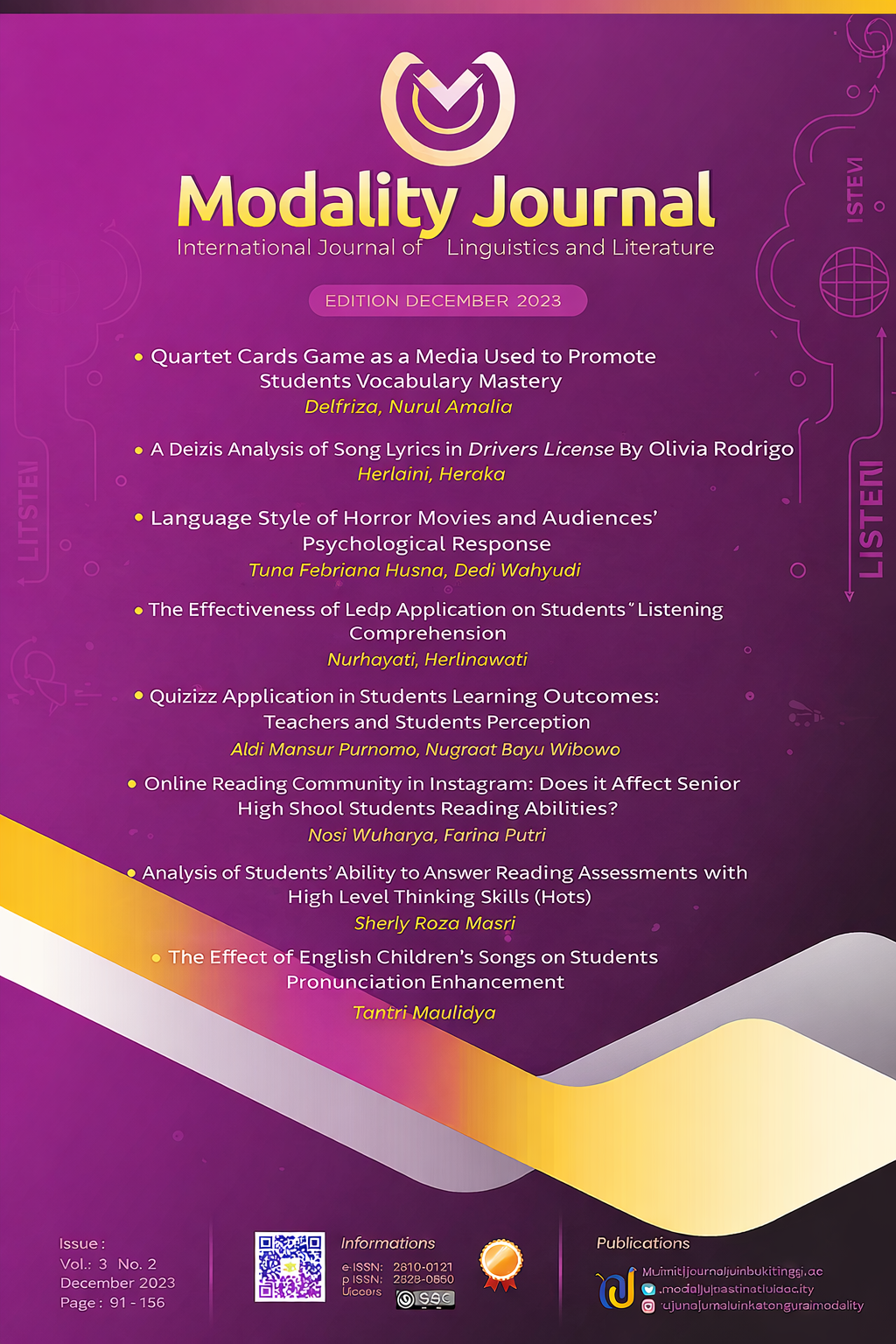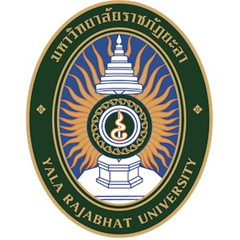Online Reading Community in Instagram: Does it Affect Senior High Shool Students Reading Abilities?
DOI:
https://doi.org/10.30983/mj.v3i2.6849Keywords:
reading skills, online reading community, Instagram.Abstract
References
Babbie, E. (2015). The practice of social research (6th ed.). Canada: Nelson Education Ltd.
Bauer-Kealey, M., & Mather, N. (2019). Use of an online reading intervention to enhance the basic reading skills of community college students. Community College Journal of Research and Practice, 43(9), 631–647.
Creswell, J.W. (2014). Research design: qualitative, quantitative, and mixed-methods approaches, vol. 1(1), retrieved from: http://journal.um-surabaya.ac.id/index.php/JKM.
Driscoll, B., & Rehberg, S.D.N. (2019). Faraway, so close: seeing the intimacy in goodreads reviews. Qualitative Inquiry, 25(3), 248–259. https://doi.org/10.1177/1077800418801375
Flanagin, et.al. (2014). Connecting with the user-generated web: how group identification impacts online information sharing and evaluation. Information Communication and Society, 17(6), 683–694.
Foasberg, N. M. (2013). Online reading communities: from book clubs to book blogs. 1(1), 30–53.
Kendeou, P., et.al., (2014). A cognitive view of reading comprehension: Implications for reading difficulties. Learning Disabilities Research and Practice, 29(1), 10–16. https://doi.org/10.1111/ldrp.12025
Miller, J. W., & McKenna, M. C. (2016). World literacy: how countries rank and why it matters (1st ed.). NY: Routledge. https://doi.org/10.4324/9781315693934.
Perry, L. (2021). Bookish identities : how the online reading community empowers the self, accessed from: https://hcommons.org/deposits/item/hc:42517/.
Petrie, G. M., & Darragh, J. J. (2018). Educative curriculum materials : a promising option. English Teaching Forum, 56(4), 2-15.
Rao, S. (2021). The role of English as global language. Edukasi, 19(1), 21. https://doi.org/10.33387/j.edu.v19i1.3200
Weber, M. (2021). Publicâ€facing literature: festivals, prizes, and social media. ii. (Book Chapter) in: The Wiley Blackwell Companion to Contemporary British and Irish Literature. ANU Research Publications in: http://hdl.handle.net/1885/220832.
Downloads
Published
How to Cite
Issue
Section
Citation Check
License
Copyright (c) 2023 Rafita Lutfiah Priyanti, Muhamad Sofian Hadi

This work is licensed under a Creative Commons Attribution-ShareAlike 4.0 International License.
Authors who publish with this journal agree to the following terms:
- Authors retain copyright and grant the journal right of first publication with the work simultaneously licensed under a Creative Commons Attribution License that allows others to share the work with an acknowledgment of the work's authorship and initial publication in this journal.
- Authors are able to enter into separate, additional contractual arrangements for the non-exclusive distribution of the journal's published version of the work (e.g., post it to an institutional repository or publish it in a book), with an acknowledgment of its initial publication in this journal.
- Authors are permitted and encouraged to post their work online (e.g., in institutional repositories or on their website) prior to and during the submission process, as it can lead to productive exchanges, as well as earlier and greater citation of published work (See The Effect of Open Access).




